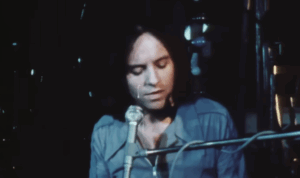There was a time when assembling a band full of stars didn’t feel like a marketing gimmick—it felt like destiny. The 1970s thrived on that magic, bringing together artists who were already giants in their own right and giving them the space to experiment, clash, and create something entirely new. Some of those collaborations left a mark that still echoes today, while others slipped quietly into the margins of rock history.
Yet hidden beneath the familiar names of the decade—Led Zeppelin, Fleetwood Mac, Pink Floyd—are bands that burned brightly for a moment before fading from the spotlight. They weren’t short on talent or ambition; if anything, they had too much of both. These supergroups delivered musicianship at a level only the ’70s could have produced, blending virtuosity with raw chemistry that’s been difficult to replicate since.
Now, decades later, their music still deserves to be heard and celebrated. Whether they were doomed by clashing egos, bad timing, or simply the changing tides of popular taste, these forgotten supergroups captured the kind of creative spark that modern collaborations rarely achieve. It’s high time they got the recognition—and the second wind—they’ve always deserved.
Little River Band
Australia’s Little River Band may not dominate classic rock playlists today, but in the mid-to-late 1970s, they were a force of easygoing brilliance. Their blend of harmony-rich rock and melodic storytelling gave listeners something timeless, even if it’s often overlooked now. Albums like Sleeper Catcher and First Under the Wire showcased a band that could balance polished production with genuine emotion—a rare feat in an era filled with musical excess.
At their peak, the group’s lineup read like a who’s who of Australian rock talent. Glenn Shorrock, Graeham Goble, Beeb Birtles, Derek Pellicci, David Briggs, and George McArdle all brought distinct experiences from bands like Mississippi, Zoot, and The Twilights. Together, they created a sound that was warm, precise, and irresistibly smooth. Despite constant lineup changes over the decades, their core spirit of melodic craftsmanship never faded.
Their biggest hit, “Reminiscing,” remains one of those songs that quietly sneaks up on you—a lush, nostalgic tune that captures the softness of the ’70s without slipping into sentimentality. It’s the kind of song that feels like a sunset on vinyl. While the band continues to tour today, their 1970s catalog still deserves far more recognition for the understated perfection it brought to the decade’s soundscape.
10cc
If the ’70s ever had an unsung hero of studio innovation, it would be 10cc. While “I’m Not in Love” has found new life in film soundtracks and playlists, much of their catalog remains criminally underrated. This British quartet blurred the lines between pop, art rock, and experimental sound design, creating music that was as clever as it was catchy. Their songwriting spark and technical precision made them one of the most inventive acts of the decade.
The original lineup—Graham Gouldman, Eric Stewart, Kevin Godley, and Lol Creme—was a supergroup in spirit if not in name. Each member had cut their teeth in projects like Hotlegs, The Mindbenders, and Doctor Father before coming together to form something far greater than the sum of its parts. What set them apart was their willingness to treat the recording studio as another instrument, layering harmonies and textures that still sound bold today.
Their mid-’70s albums The Original Soundtrack (1975) and Deceptive Bends (1977) remain essential listening for anyone who values musical wit and ambition. Songs like “Life Is a Minestrone” and “The Things We Do for Love” showed how 10cc could blend humor, heart, and technical mastery without missing a beat. It’s a shame they’re not as celebrated as their contemporaries—because in many ways, they were ahead of them.
The Planet Earth Rock and Roll Orchestra
Unlike most supergroups, The Planet Earth Rock and Roll Orchestra wasn’t a formal band—it was a musical movement. This loose collective of West Coast legends jammed, collaborated, and recorded throughout the 1970s, leaving behind a patchwork of psychedelic folk, rock, and cosmic experimentation. They never released music under that name, but the spirit of collaboration they embodied was the very essence of what makes a supergroup special.
The roster alone reads like a psychedelic dream. David Crosby, Graham Nash, Paul Kantner, Grace Slick, Jorma Kaukonen, Jack Casady, Jerry Garcia, Phil Lesh, Bill Kreutzmann, Mickey Hart, David Freiberg, and Stephen Barncard all took part. Whether working under Jefferson Starship, Crosby & Nash, or the Grateful Dead, these musicians were constantly crossing creative boundaries and inspiring one another.
Their gatherings were less about fame and more about freedom—the freedom to explore sound, community, and experimentation. The recordings that emerged from those sessions carry a spontaneous, human energy that feels alive even decades later. The Planet Earth Rock and Roll Orchestra wasn’t just a group—it was an idea, a reflection of the ’70s counterculture at its most inspired.
